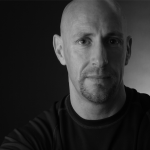5 Newbie Fitness Mistakes And How To Avoid Them
By Patrick DalePublished: April 5, 2016

Getting fit, losing weight, and getting healthy are very worthy pursuits. Not only are you doing yourself good, your friends and family will benefit too as you’ll have more energy than usual and probably be in a better mood because of your workouts. They’ll soon come to love and admire the new, fitter, you!
However, if you are new to exercise, it’s all too easy to fall into the trap of undermining your progress by making some all-too-common fitness mistakes.
Avoid these pitfalls so that, from day one, your workouts are as fun, safe, and productive as possible…
1 | Doing too much, too soon
If exercising three-times a week is good, six-times a week must be twice as good, right? While such enthusiasm should be applauded, exercising too often or too hard can leave you feeling tired, sore, or even injured. While you may well work up to exercising more than three-times eventually, most beginners would do a lot better if they stick to a day on/day off schedule to allow plenty of time for recovery between workouts.
Getting fit and healthy is a marathon and not a sprint and three workouts per week forever is much better than six workouts a week for a couple of months.
2 | Not paying attention to exercise technique
There are two ways to perform any exercise – the right way and the wrong way. The right way works your muscles in the most effective way while keeping your risk of injury to a minimum. The wrong way might make an exercise easier, or allow you to do more repetitions or lift more weight, but you are much more likely to hurt yourself and, in many cases, the exercise becomes less productive.
Take time to learn how to perform the exercises in your workout plan properly. Get help, advice, and guidance from a qualified personal trainer to ensure you technique is as good as possible. Good habits learnt when you are a beginner will stand you in good stead for the future whereas bad habits can be very hard to break.
3 | Exercising without a goal
The fitness you develop from your workouts is very specific to the type of exercise you perform. This is the fitness law of specificity. For example, if you want to get better at running, you need to run more. Make sure you get the results you really want by deciding on some fitness goals and tailoring your workouts to reach them.
If you want to tone up, you’ll need to target your muscles using bodyweight, resistance band, or weight training exercises. If you want to get fit, you’ll need to focus more on cardio workouts such as swimming, cycling, or running. For weight loss, your workouts should be designed to burn as many calories as possible.
Having a goal also give you a “why” for your workouts which can be helpful if you find your enthusiasm starting to wane.
4 | Only doing the exercises you like
As you get more and more into your workouts, inevitably, you’ll find that there are some exercises you LOVE and some you HATE. It can be very tempting to do more of the ones you enjoy and skip the ones you don’t like so much. This is a big mistake. In many cases, it’s the exercises you don’t enjoy so much that you should be doing more of!
The exercises you enjoy are probably the exercises you are good at and that means you are already quite strong or fit in these areas. However, the exercise you find hard or don’t enjoy as much suggest that these are the areas that need more work.
Don’t ignore the exercises you find hard – your workout will probably become very unbalanced if you do this. Instead, perform an equal amount of the exercises you love and the exercises you hate to keep your workout balanced. Remember; it’s the things you don’t enjoy doing that are probably the most beneficial.
5 | Trying to out-exercise a bad diet
Regular exercise is important for health, fitness, and weight loss but is only half of the fitness equation – the other half being diet. What you eat is just as important as the exercise you do. In fact, your diet is arguably more important as it is almost impossible to out-exercise a bad diet.
Your body needs so much more than just calories to survive and thrive; it also needs an abundance of nutrients such as vitamins, minerals, and fibre. While exercise can help you burn excess calories, it cannot provide your body with those essential nutrients. Also, while exercise does indeed burn calories, you’d have to exercise virtually non-stop to burn off an unhealthy diet made up from high-calorie, sugar-loaded junk food. That’s why so many people fail to lose weight despite exercising religiously – they are eating too much of the wrong kinds of food.
Make sure your diet supports your new exercise habit to ensure you aren’t undoing your good work with unhealthy foods.
All too many newbies inadvertently make these mistakes and, as a result, never get the fitness results they deserve. Some even drop out of exercise altogether. Do your best to avoid these traps and you’ll be rewarded with enjoyable, productive workouts for years to come.
Like what you're reading? Sign up for our free newsletter and never miss a post! Plus get a FREE digital version of our Issue No.10 with sign up.

- Best Winter Workouts At Home, No Equipment Required - September 5, 2018
- The 15-Minute Fat Burning Workout for Busy Women - March 10, 2016
- How To Achieve Your Fitness Goals Even If The Year Is Almost Over - September 5, 2018
- Why You May Be Sedentary Even if You Exercise an Hour a Day and How to Change It - September 19, 2021
- 5 Newbie Fitness Mistakes And How To Avoid Them - April 5, 2016
- How To Handle Post-Workout Muscle Soreness - March 8, 2016
- When Is The Best Time of The Day To Work Out? - October 27, 2015
- New Step Up Interval Routine To Firm Up Your Bum - April 21, 2016
- Weekend Challenge: The Out And Back Run - April 15, 2016
- How To Avoid Knee Pain With Squat Exercise - February 23, 2016











